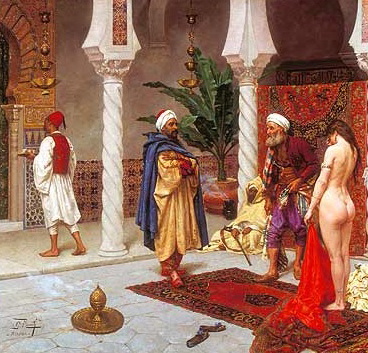Hi @SarathW1
This is a good question and while it’s great to see what the EBTs suggest, it’s important to reflect on the broader picture of the Dhamma; indeed, the EBTs also suggest that we do exactly this: think for ourselves in light of the Dhamma.
And for me, according to this “big Dhamma picture”, virtue’s basis is kindness, harmlessness, the promotion of not just truth, but a Truth that will lead to greater ease - a Big Truth, encompassed by kindness, based in kindness.
Such a Teaching, that encourages us to reflect, to think for ourselves as it were and also, at the same time, encourages extraordinary, heroic kindness leads me to the following opinion.
That it is up to each one of us to make sure that no harm comes to ourselves or to those whom we interact with - regardless of whether or not one’s sexuality is involved. It is not up to another person, to interpret EBTs for us. It is up to us. Because the nature of the actual Practice…is well…practical. It’s such a verb. It has to be done. And by no one but our own selves. Thus it’s personal. It has to be a decision based on personal reflection.
And of course we can share our personal reflections with each other but really, it seems to me, a valueless activity to judge each other on these. However, I do find it interesting to listen/read the reflections of those who’ve read the EBTs widely, who’ve practiced for a long time and who demonstrate through their behaviour that they’ve become better human beings: kinder, more patient, more peaceful, less harsh.
And one of the opinons that I"ve come across in my travels is that the 3rd precept takes into account both time and place. Thus the social norms of a given cultural/historical context comes into play.
Again, going back to the “big Dhamma picture” this makes sense. Because if we are, as the EBTs suggest time and again, simply born of causes and conditions; then that which harms us and hurts, that which breaks our hearts and trust will also be born out of a particular context.
I hope this helps.  At the end of the day, we each have to decide for ourselves, not to harm. And that means thinking about a possible partner’s conditioning, and whether or not, what we propose to them, will hurt them or not. Virtue, for me, and it’s how I read the EBTs, is always about harmlessness and of course, to do that, we have to dig deep; we have to really see each other, understand each other, as only then can we reduce the harm we cause each other.
At the end of the day, we each have to decide for ourselves, not to harm. And that means thinking about a possible partner’s conditioning, and whether or not, what we propose to them, will hurt them or not. Virtue, for me, and it’s how I read the EBTs, is always about harmlessness and of course, to do that, we have to dig deep; we have to really see each other, understand each other, as only then can we reduce the harm we cause each other.
When people say to me that the EBTs were spoken in another time, another culture, as if these were reasons to dismiss them, I find myself perplexed. For these reasons don’t point to excuses for dismissal; rather they call me to understand more deeply and to see, that past time and my own, not according to common sense, but according to “Buddha-Dhamma sense”.
And as for that comment about being a Sri Lankan…well…I could make such a claim too…it’s part of my cultural and genetic heritage. I get it. I get what the worlds of expression are in just that little phrase: “As a Sri Lankan”…
But I also get how trapped that makes a human being. To simply “be” this fixed. It’s trapped. It’s a trap. A trap of identity. Conditioning is not just a Truth, it’s a Noble Truth…specifically I’m thinking of the 3rd and 4th Noble Truths…Conditioning is fluid and seeing this (even on rudimentary levels) is supposed to give us some power to see that we are actually not so trapped. We can actually free ourselves.
This person, using their “Sri Lankanness” as a weapon to keep others as stuck as they are within their cultural sense of self, is insulting the true Buddhist history of that island: the True Buddhist history of Sri Lanka is one that grew Arahants, sustained a thriving 4 fourfold community. Anyone, suggesting that it is their ethnic/national identity that gives them the right to judge the interpretations, reflections and Practice of other Practitioners, insults those Arahants of old, those men and women and children who truly practised on that island and who are still doing so today.
They rob anyone of non-Sri Lankan background of any rights to the Dhamma. And they have no right to do this. Because they didn’t start the wheel of Dhamma rolling for the benefit of all, including non-Sri Lankans. To bring their “Sri Lankanness” into this matter, is therefore, not only an act of harmfulness, an unkindness, a meanness to those who aren’t Sri Lankan, it is also a demonstration of gross Ignorance and stupidity, utter Avija. And if only on some worldly measure, anyone judges my right to say so, then I’ll tell them that my skin is as brown as milk chocolate and I feel a great affinity for that island on which I was born in this life and on which my biological ancestors were born, but I know better than to think that gives me any “ownership” of Buddhist knowledge and on some level I know that it’s not really who I am.
The Buddha gave us all the gift of Dhamma. To whatever degree we Practice it earnestly and kindly, it belongs to us to that degree.
With metta


 At the end of the day, we each have to decide for ourselves, not to harm. And that means thinking about a possible partner’s conditioning, and whether or not, what we propose to them, will hurt them or not. Virtue, for me, and it’s how I read the EBTs, is always about harmlessness and of course, to do that, we have to dig deep; we have to really see each other, understand each other, as only then can we reduce the harm we cause each other.
At the end of the day, we each have to decide for ourselves, not to harm. And that means thinking about a possible partner’s conditioning, and whether or not, what we propose to them, will hurt them or not. Virtue, for me, and it’s how I read the EBTs, is always about harmlessness and of course, to do that, we have to dig deep; we have to really see each other, understand each other, as only then can we reduce the harm we cause each other.
